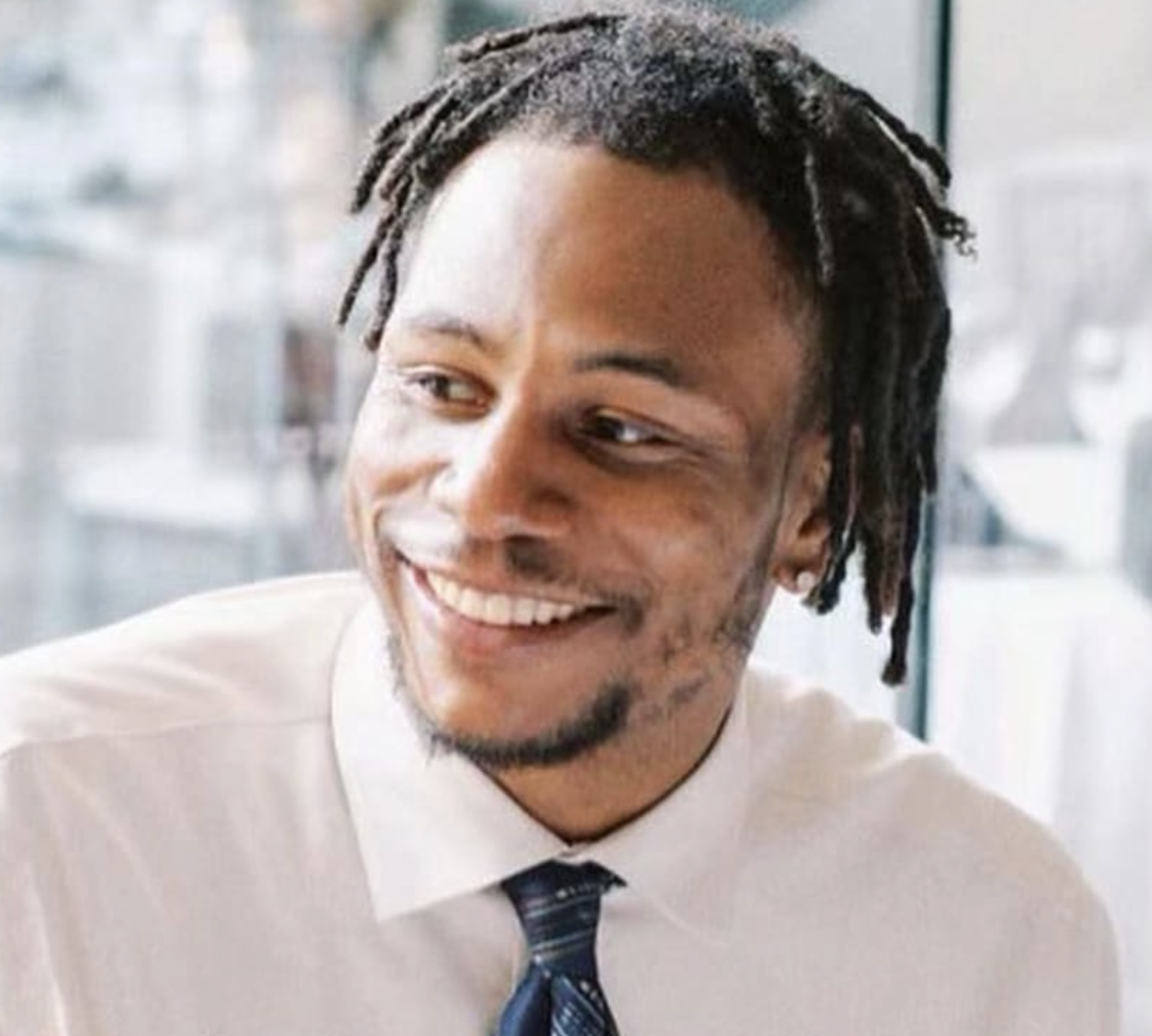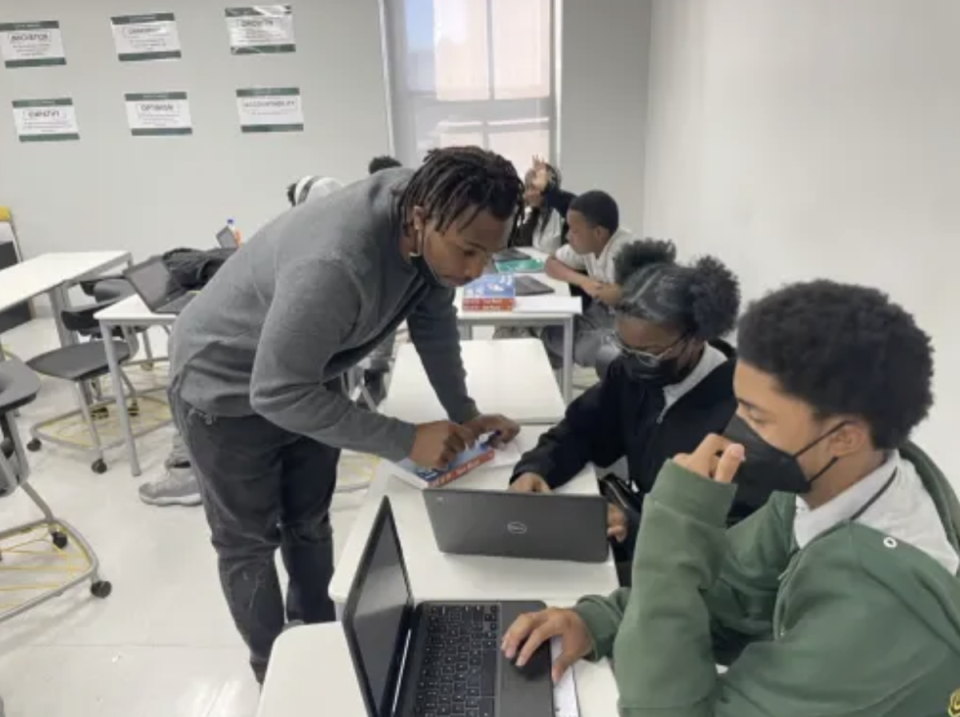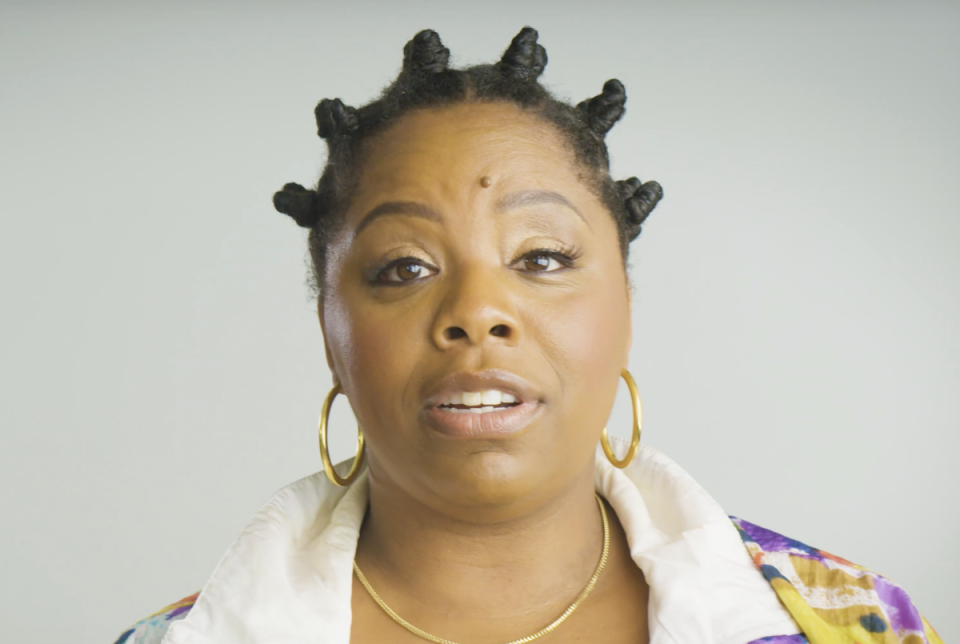Keenan Anderson, cousin of a BLM founder, was a highly respected DC high school teacher. How did he end up ‘tasered to death’ by the LAPD?

Black Lives Matter co-founder Patrisse Cullors is among the many relatives, friends and colleagues of Keenan Anderson who are demanding answers after the respected Washington DC high school teacher was allegedly “tasered to death” by LAPD officers.
“All I know is that my cousin was asking for help, and he didn’t receive it,” Ms Cullors, 39, told The Independent in an interview on Friday. “And hours later he was dead in the hospital.”
Anderson, a 31-year-old father of one, was visiting family in Los Angeles while on a winter school break when he was involved in a traffic accident in the Venice neighbourhood on 3 January.
When officers arrived, they witnessed Anderson “running in the middle of the street and exhibiting erratic behavior”, according to an LAPD press release.
Edited bodycam footage released on Wednesday shows Anderson attempting to run away police, before being pinned down on his stomach by several officers. As he continued to struggle, an officer fires a 50,000 volt charge into him at close range for approximately 30 seconds. The officer briefly pauses before tasering him again.
The LAPD said in a statement that Anderson was given medical assistance at the scene before being taken to a Santa Monica hospital, where he suffered a cardiac arrest.

LAPD chief Michel Moore told a press conference on Wednesday that Anderson had committed a felony hit-and-run and was trying to flee the scene by getting into another person’s car.
Ms Cullors told The Independent she hadn’t yet seen the entire bodycam footage, having been given the edited version a few hours before it was made public, and wanted to know more about the circumstances leading up to her cousin’s death.
One thing she knows for certain: “If my cousin didn’t have to interact with police that day, he would still be alive.”
‘He loved his students’
Anderson lost his mother at a young age, and was raised by members of his large extended family. The family that had moved from Louisiana to California after encountering racism, Ms Cullors said.
She recalled spending summers with Anderson and their cousins, uncles, aunts and grandparents in Los Angeles, hanging out in parks and having picnics.
“Laughing, playing, barbecuing, those were the most powerful moments. When you get to be together without having to deal with any issues from police. Just being free,” she said, adding that Anderson had “big old eyes” and a magnetic personality that would rub off on everyone around him.
After enduring a difficult childhood, Anderson had big dreams of making an impact in the world. He initially wanted to become a police officer, but later decided he could effect the most change through education, she said.
“He was a human being who could transform his community, transform the world. He was super funny, super smart,” she said.
Ms Cullors founded Black Lives Matter with friends and fellow activists Alicia Garza and Ayo Tometi in response to the acquittal of George Zimmerman in the shooting death of Trayvon Martin in 2013.
Over the course of her two-decades in the civil rights movement, she says she spoke at length to Anderson about effecting change for the Black community.

She said Anderson saw his work as a teacher, educating young minds and supporting young people in crisis as an essential part of the movement.
“He loved his students, loved his family, and did everything in his power to help change his life but also change the lives of those around him,” Ms Cullors told The Independent.
Anderson had been working for several years at a charter school in Watts, in south Los Angeles, before getting a job at the Digital Pioneers Academy in Washington DC six months ago.
“Our family didn’t just lose a loved one, but the community lost a mentor. The students lost a person who was changing their lives,” she said.
‘They’re trying to George Floyd me’
The LAPD released an edited version of police bodycam footage from the 3 January incident which shows officers arriving at the corner of Venice and Lincoln boulevards in Venice, Los Angeles, at about 3.38pm on 3 January.
A woman is seen telling officers: “I think that guy up there needs help though, because the guy’s trying to run away.”
Anderson spoke to the officers for several minutes, the LAPD statement said. Then, as additional police units arrive, he suddenly attempted to flee along Venice Boulevard.
The police bodycam video cuts to text saying that he “attempted to run away.” The footage resumes to show Anderson running the road, and when an officer catches up to him he is instructed to lie down on his stomach.
Officers tell him to relax as they move him on to his stomach. He is heard crying “Help, they’re trying to kill me” as he struggles with several officers.
Footage from a second officer then shows police warning Anderson they will tase him if he doesn’t stop struggling.
“They’re trying to George Floyd me,” he is heard saying. The officer then tasers Anderson for a period of approximately 30 seconds, and after a pause for another 5 seconds, the footage shows. He is handcuffed and placed on a stretcher by medics from the Los Angeles Fire Department.
Anderson died in hospital about four and a half hours after he first came into contact with police.
A community ready for change
After years of activism aimed at reforming law enforcement and redistributing bloated police budgets into social services, Ms Cullors said it’s been “disorienting” to lose someone so close to her in this way.
She says that Anderson’s death, coming in the same week as two other people of color were killed by the LAPD, clearly illustrates why police have no business responding to traffic stops or people suffering mental health crises.
“My cousin’s death should be a huge reminder of why, when Black people ask for help, we should receive help, we should receive care. We should be able to receive those things that are life-giving,” she said.
Ms Cullors believes that the majority of the American public wants to change the relationship between police and the communities they operate in, and all that is lacking is the will of elected officials.
“People want law enforcement to be reduced in their communities. Our issue is the lack of courage from elected officials to change policy, to reevaluate its relationship to policing,” she said. “When you’ve been gaslit by LAPD, law enforcement and elected officials about police and why they’re needed, and one of your own family members is killed by them, terrorised by them, it becomes incredibly clarifying about what is needed, what is most important.”
Ms Cullors said the family were preparing to file a formal complaint against the LAPD, and that a lawsuit may follow.
“Our family should be able to live full lives. We shouldn’t have to have viral headlines because someone in our family has died at the hands of the LAPD,” she said.
‘It’s all just too much’
The release of bodycam footage on Wednesday prompted a furious reaction on social media.
“This has to stop,” wrote Misan Harriman, a photographer and close friend of Meghan Markle, on Instagram, alongside footage of Anderson being tased. “My God. â£It’s all just too much.⣠Again. In the heart of Los Angeles. On the pavement, begging for his life, police from the LAPD killed another young brother in broad daylight.”
Actor Seth Green wrote in a Twitter post: “No big deal, just LAPD murdering a man on the street for no reason.”
Comedian and writer Travon Free called for the LAPD to be “held accountable at all costs” in a viral post on Twitter: “The LAPD murdered Keenan Anderson. A beloved high school English teacher and father who FLAGGED THEM DOWN FOR HELP after a car accident. He was a threat to no one. He needed help and it cost him his life.”
‘Our community is grieving’
The Digital Pioneers Academy in Washington DC is in mourning over the Anderson’s death.
Founder Mashea Ashton said in a statement posted to the high school’s website it was the third member of the school community to fall victim to violence in the past two months.
“The details of his death are as disturbing as they are tragic. Our community is grieving. But we’re also angry,” Ms Ashton said. “Angry that, once again, a known, loved, and respected member of our community is no longer with us. Angry that another talented, beautiful Black soul is gone too soon.”
She said Anderson had been a teacher for eight years, and in the six months he worked at the academy he established “strong relationships with scholars and staff”.
“He was beloved by all,” Ms Ashton said. “Our school community will inevitably ask some really important questions in the days and weeks ahead: How could the police have de-escalated this situation? How are we going to stop losing our black boys and men to violence? How do we grieve and move forward as a community? We all deserve answers to these questions. Keenan’s family deserves justice. And our students deserve to live, to live without fear, and to have the opportunity to reach their fullest potential.”
‘This is a vigil, not a protest (yet)’
BLM’s Los Angeles branch is organising a vigil for Anderson at the location where he died at 5pm on 14 January.
“Join the family and loved ones of Keenan Anderson as we lift his Spirit and generate the energy needed to fight for justice in his name,” a post on their Instagram page read.
“This is a vigil, not a protest (yet). Please wear white, bring candles, flowers, prayers, and love.”


